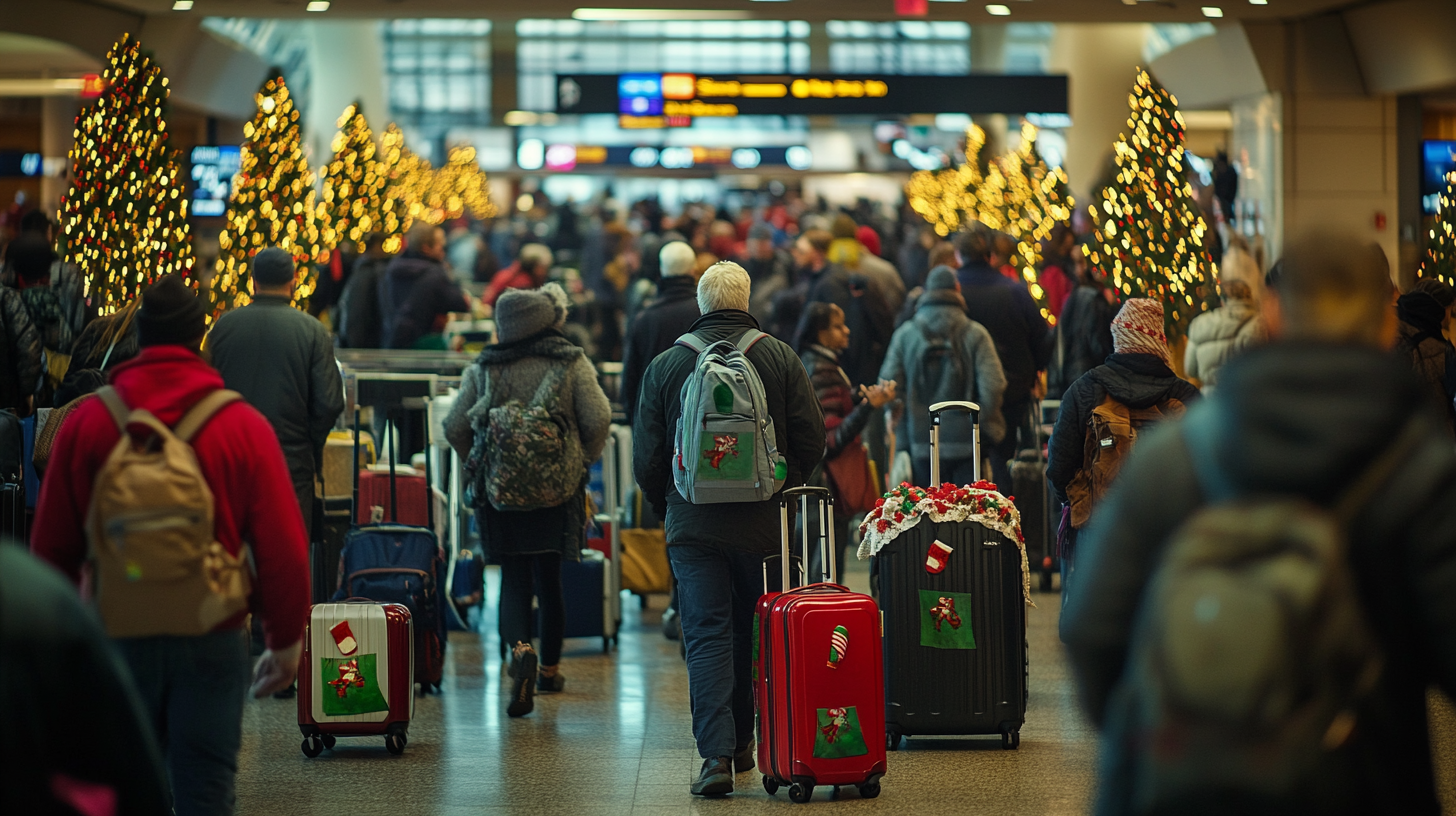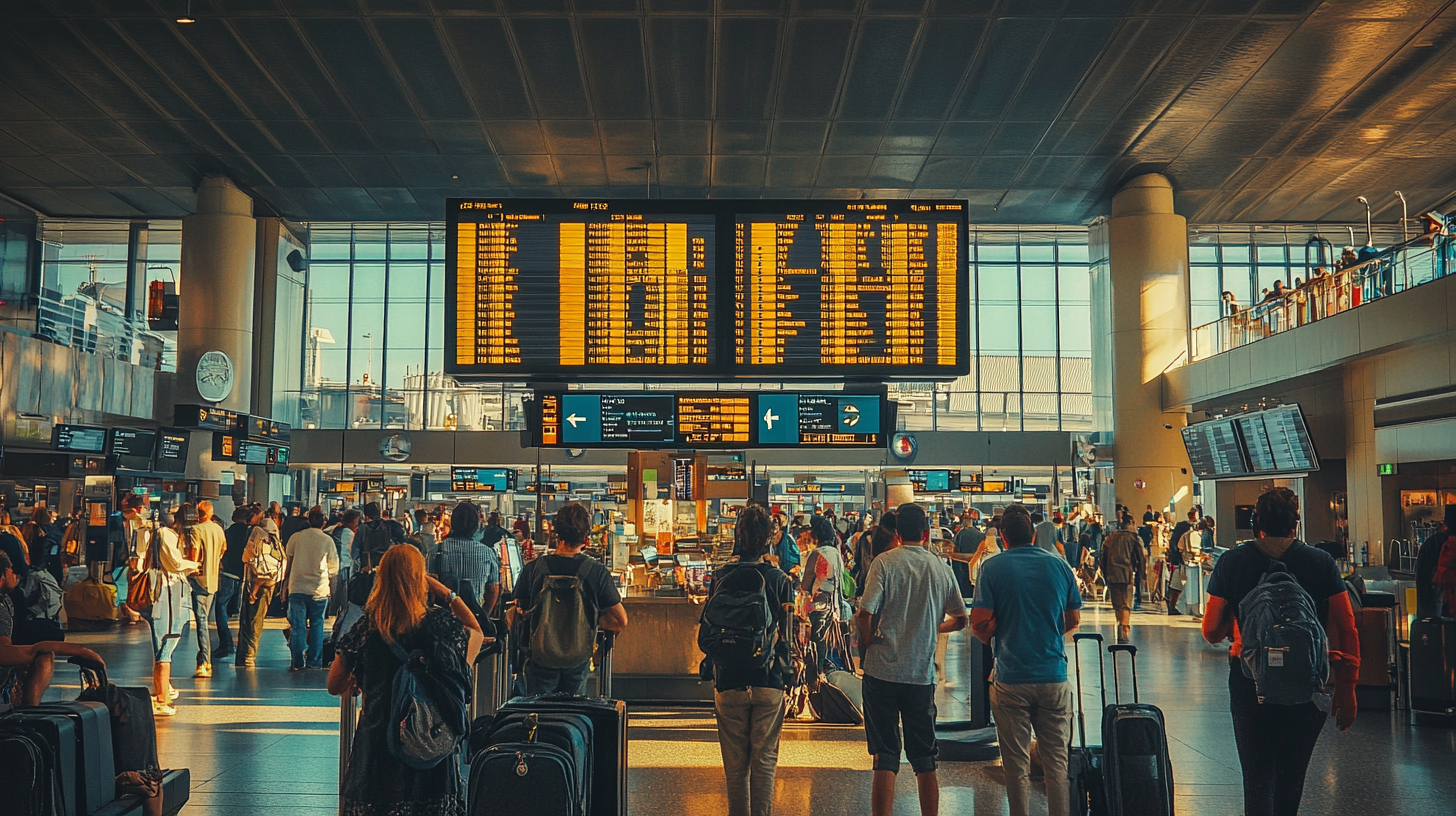Unlocking the Best Time to Buy Flight Tickets: An In-Depth Guide

In the ever-fluctuating world of airfare, knowing the best time to buy flight tickets can make a significant difference in your travel budget. Imagine planning a dream vacation, only to discover that booking your flight just a day earlier could have saved you hundreds of dollars. Gone are the days when simple rules like booking on a Tuesday guaranteed the lowest fares. Today, savvy travelers need to navigate a complex landscape influenced by real-time demand, flexible booking policies, and advanced price tracking tools. Understanding these factors is essential for anyone looking to optimize their travel expenses and make the most of their journeys. This comprehensive guide delves into current insights and expert advice to help you secure the best deals for your next trip, including strategies for finding the cheapest flight tickets .
The Myth of the Magic Booking Day

For years, travelers clung to the notion that booking flights on specific days, particularly Tuesdays, would yield the lowest prices. This belief stemmed from airline pricing strategies in the early days of online booking, where carriers would release new fares and deals at the beginning of the week. However, this practice is now considered outdated due to the advent of sophisticated algorithms and real-time pricing models. According to a 2023 Expedia study, booking flights on Sundays can lead to savings of up to 6% on domestic flights and 17% on international flights. This shift reflects changes in consumer behavior and airline sales strategies. Similarly, a 2022 Google study suggests slight savings for mid-week purchases but advises against relying on a specific day to book, emphasizing that airfare pricing is more dynamic than ever before.
Flight prices fluctuate constantly due to real-time demand rather than the day of the week. For instance, if there’s a sudden surge in bookings for a particular destination—perhaps due to a popular event or seasonal attraction—airlines adjust their prices accordingly to maximize revenue. While some reports indicate that Saturdays generally offer the cheapest flights, these trends are not guaranteed and can vary based on numerous factors. The key takeaway is that flexibility and vigilance are more effective than adhering to old booking myths. By staying informed and monitoring fare changes, travelers can capitalize on price drops and avoid overpaying for tickets.
Optimal Booking Windows

Determining the best time to purchase tickets largely depends on whether you’re traveling domestically or internationally, and if your trip coincides with peak travel seasons or holidays. Airlines manage their inventory differently for domestic and international routes, considering factors such as competition, demand patterns, and operational costs. Understanding these nuances can help travelers identify the optimal booking windows and avoid unnecessary expenses.
Domestic Flights

For domestic travel, experts recommend booking flights 1-3 months in advance. This timeframe strikes a balance between the high prices that accompany last-minute bookings and the sometimes limited deals available too far in advance. Data suggests that the prime booking window is around 28 to 44 days before departure, where airlines begin to adjust prices based on remaining seat availability and demand forecasts. A study by CheapAir indicates that purchasing tickets about 42 days before travel secures the best deals, which is closer to departure than in previous years due to changing market dynamics. By monitoring prices during this window, travelers can take advantage of the most competitive fares.
International Flights

When it comes to international travel, the stakes are higher, and planning ahead is crucial. International flights often involve more complex logistics, fewer flight options, and higher demand fluctuations, especially during peak seasons. The optimal time to book is at least 3-6 months in advance, allowing travelers to secure seats before prices escalate. Specifically, booking 60 days before departure has been shown to help find lower fares, as airlines begin to adjust prices based on early booking trends. For longer-haul flights, especially transpacific routes, consider booking 5-7 months ahead to avoid inflated prices that result from increased demand and limited seat availability. Early planning not only helps in saving money but also provides ample time to arrange visas and other travel essentials.
Holiday Travel

Traveling during holidays requires even more strategic planning due to increased demand and limited flight availability. Airlines are aware of the high demand during these periods and often adjust prices accordingly. For Thanksgiving, Google Flights data suggests booking about 52 days in advance to take advantage of moderate pricing before last-minute surges. For Christmas travel, aim to secure your tickets 36-72 days before departure, as prices tend to rise sharply as the holiday approaches. Booking during the window of 26-59 days in advance is generally beneficial for holiday travel deals, providing a balance between early-bird discounts and avoiding premium last-minute prices. Being proactive and monitoring prices during these periods can help travelers avoid the stress and expense of holiday travel.
The Best Days to Book and Fly

Booking Days

While no single day guarantees the lowest prices due to the fluid nature of airfare pricing, data reveals some trends worth considering to maximize savings. Booking on Sundays is ideal, offering potential savings on both domestic and international flights, possibly due to reduced business travel bookings during weekends. Conversely, avoid booking on Fridays, which tend to be pricier as business travelers finalize last-minute trips and leisure travelers begin their weekend plans. By aligning your booking schedule with these trends, you can potentially reduce your airfare costs.
Flying Days

The day you choose to fly can also significantly impact the fare, as airlines adjust prices based on typical travel patterns. For domestic flights, midweek travel is generally cheaper, with Wednesdays offering the lowest one-way fares due to lower demand from both business and leisure travelers. For round-trip domestic flights, consider departing on Fridays and returning on Tuesdays for cost-effective options, as these departure and return dates can help you avoid peak pricing periods. Internationally, departing on a Tuesday or Thursday can lead to savings, as these days are less popular for international departures. By being flexible with your flying days, you can take advantage of lower demand periods and secure better fares.
Leveraging Tools and Strategies

In the digital age, travelers have access to a wealth of tools and strategies designed to demystify airfare pricing and help them find the most competitive deals. Utilizing these resources effectively can make the difference between an expensive ticket and a bargain fare, as detailed in comprehensive airfare comparison tools .
Price Tracking Tools

- Google Flights: Use Google Flights to compare prices across multiple airlines and set up alerts for price drops on your desired routes. Its extensive data and intuitive interface help you monitor fluctuations and decide when to book. Additionally, Google Flights provides historical price trends and tips, such as whether prices are low, typical, or high for your trip.
- KAYAK: KAYAK’s Explore map allows you to discover destinations within your budget, while the Direct Flights filter helps you find non-stop options. Setting up Price Alerts enables you to track fare changes and receive notifications, ensuring you don’t miss out on deals.
- Capital One Travel: This platform offers price tracking features and uses artificial intelligence to predict future prices, helping you determine the optimal time to purchase tickets. Cardholders may also benefit from additional rewards and exclusive offers.
- Hopper: Hopper predicts future flight prices with 95% accuracy up to one year in advance. The app notifies you when to book to save money and offers a “Price Freeze” feature, allowing you to lock in a fare for a small deposit while you finalize your plans. This can be particularly useful when prices are volatile.
Flexible Booking Policies

Most U.S. airlines now offer fee-free changes on standard economy tickets, a shift in policy that emerged in response to traveler demands for more flexibility. This flexibility allows you to rebook if prices drop after your purchase, without incurring change fees that were common in the past. By monitoring fares even after booking, travelers can potentially rebook the same flight at a lower price or choose a different itinerary that better suits their needs. Taking advantage of these policies can lead to significant savings without the risk of losing money on non-refundable tickets, an approach highlighted in making the most of airline flexible booking policies . It’s important to read the airline’s policy details, as basic economy tickets may still have restrictions.
Travel Credit Cards

Consider using travel credit cards that offer rewards, points, or cash back on airfare purchases. Earning miles or points on travel expenses can accumulate quickly, leading to free or discounted flights in the future. Some travel cards also provide perks such as complimentary travel insurance, priority boarding, or access to airport lounges, enhancing your overall travel experience. Additionally, some cards offer sign-up bonuses that can significantly offset travel costs if you meet the spending requirements. When choosing a card, compare the rewards programs and benefits to find one that aligns with your travel habits and goals, as discussed in best travel credit cards for airfare savings .
Expert Tips for Specific Travel Periods

Spring Break Travel

Spring break is a peak travel period, with students and families taking advantage of the time off to vacation. The Points Guy advises booking spring break flights early due to high demand that often leads to increased prices and limited availability. Start planning and monitoring prices as soon as possible, ideally 1-3 months in advance for domestic trips. Utilize tools like Google Flights to set up alerts, and consider alternative airports or destinations to expand your options. Being flexible with your travel dates, such as considering departures a few days before or after peak dates, can also help you find the best deals and avoid the crowds.
Summer Travel

Summer travel is popular worldwide, with many destinations experiencing peak tourist seasons. For summer trips, apply the “Rule of 90“: book your flights around 90 days before your planned departure. This timing helps you capitalize on the prime booking window for lower fares before prices increase due to higher demand. Airlines often release summer flight schedules and promotional fares several months in advance, providing opportunities for early bookers. Additionally, consider bundling flights with hotel bookings or rental cars for extra savings, as travel providers frequently offer package deals during this period. Being proactive and planning ahead can make your summer vacation more affordable and enjoyable.
The Importance of Flexibility and Planning

Effective planning and flexibility are paramount when aiming for budget-friendly travel. Airlines price tickets based on demand, so being open to adjusting your travel dates by even a few days can lead to significant savings. Off-peak days and times, such as early morning or late-night flights, are often less expensive due to lower demand. Consider flying during the shoulder seasons—periods just before or after peak tourist seasons—when fares and accommodation prices are lower, and destinations are less crowded. Utilize savings generators and best time to travel tools to identify optimal dates and receive customized recommendations based on your preferences. By remaining flexible and planning ahead, you can stretch your travel budget further and perhaps even enhance your travel experience.
Making Informed Decisions to Save on Airfare

Ultimately, the best time to book flights is when you find a fare that fits your budget and schedule. Prices change frequently due to factors like fuel costs, competition, and demand, making it challenging to predict the perfect time to buy. By staying informed, using the right tools, and applying expert insights, you can navigate the complexities of airfare pricing. Remember, the key is to monitor prices, be flexible with your plans, and act swiftly when a good deal arises. Patience and attentiveness are your allies in securing the best fares and ensuring a smooth travel experience.
Final Thoughts

Follow us back to Seat 5A for more insights and tips on optimizing your travel experiences. Navigating the best time to buy flight tickets requires a combination of strategic planning, flexibility, and the smart use of technology. While old booking myths no longer hold true, embracing current data and tools empowers you to make informed decisions that can save you time and money. Whether you’re planning a spontaneous domestic getaway or orchestrating a meticulously planned international adventure, applying these insights will help you secure the best possible fares and enjoy a more affordable travel experience. By staying proactive and informed, you can turn the complexities of airfare pricing into opportunities, ensuring that your travel dreams become a reality without breaking the bank.






